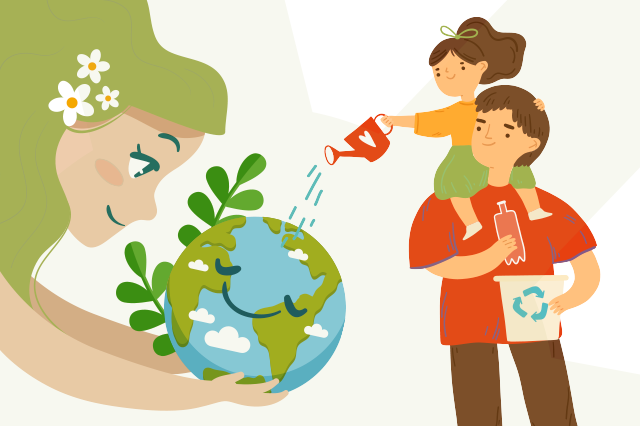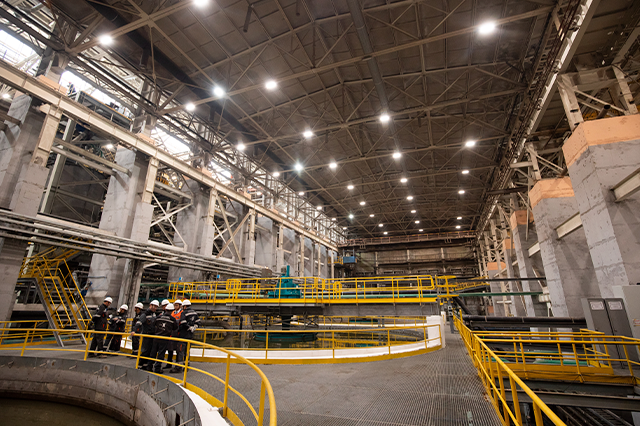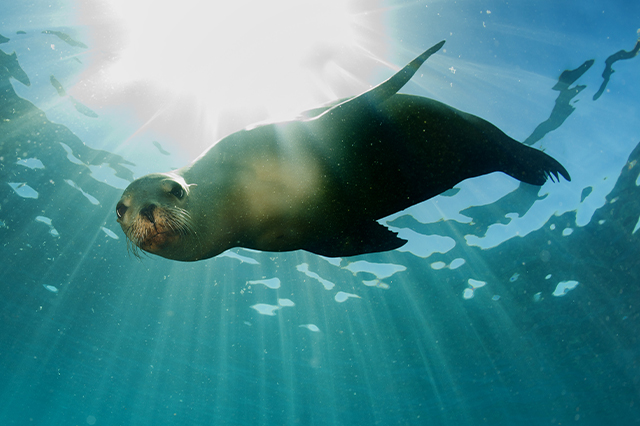In today's world, sustainable development is not just a fashionable trend but is becoming a fundamental principle for major companies. A responsible attitude to the environment and society allows for maintaining a balance between industrial progress and care for the planet.
ERG, one of the leading metallurgical companies in the world, is a vivid example of how businesses can act in the interests of sustainable development. 2018 the company's Environmental Strategy was presented as part of its extensive Green Metallurgy program. This is not just a document but an action plan: ERG plans to invest 228 billion in environmental projects by 2030.
What is behind these figures? Specific commitments and targets aimed at reducing environmental impact. In particular, ERG aims to reduce particulate emissions by 56%, reduce pollutant discharges by 30%, and reduce water consumption by 33%. The main environmental projects are concentrated in the Pavlodar region, where the group's key enterprises are located.
Thus, one of the priority areas at the first stage of the strategy implementation is to reduce solid substance emissions to the level of world standards. This applies, in particular, to such enterprises as Aluminum of Kazakhstan, Kazakhstan Electrolysis Plant, Eurasian Energy Corporation, and Aksu Ferroalloy Plant.
The strategic focus on "green" metallurgy emphasizes not only ERG's responsible attitude to the environment but also the company's confidence that sustainable development is a long-term investment in the favorable future of all of Kazakhstan.
Tailings processing: ERG's innovative approach to ecology and sustainable development
Under the pressure of global environmental trends and constantly tightening standards, industrial companies are increasingly setting themselves on the task of minimizing waste and returning already accumulated waste to production. ERG is taking decisive steps in this direction.
About 900 thousand tons of sludge "tailings" are generated at Donskoy GOK annually, and the total volume of sludge accumulated has reached 14.5 million tons. These "tailings" contain significant reserves of chromium oxide, which were previously considered unclaimed. ERG has launched the "ERG Green" plant to recycle them. The plant is the first phase of a large-scale sludge processing program.
The program includes four key phases:
1. Construction of a sludge processing plant. This innovative plant uses a gravity concentration method to extract chromium oxide. This approach has never been used before and produces a concentrate with a chromium oxide content of at least 48.5%.
2. Construction of a flotation tailings beneficiation area. This project aims to maximize the recovery of valuable chromium products from the tailings.
3. Enrichment of the Ore Beneficiation and Pelletizing Plant (OPP) tailings. This project provides for the extraction of chromium oxide from the sludge of the OOPF, which will allow for additional treatment of up to 600 thousand tons of sludge.
4. Construction of a fine briquetting section. Here, cold briquettes will be created from concentrate to meet the needs of the plants for pelletized raw materials.
Investments in the ERG Green program will amount to 96 billion tenge (of which more than 50 billion is the construction of the factory, which was financed by the Development Bank of Kazakhstan, among others), which will create 400 new jobs.
By implementing this program, ERG will be able to significantly reduce the volume of previously stored waste and increase processing to 2.2 million tons per year. This is not only an economic benefit - 10 billion tenge of taxes annually, but also a contribution to the environmental well-being of the region.
Ecological modernization of Kazakhstani enterprises
Modern production can only exist by taking environmental standards into account. The ERG is actively investing in the modernization of its facilities, which is confirmed by a significant reduction in harmful emissions. For example, thanks to a new generation of filters, particulate emissions are expected to be reduced by 56% by 2030.
Projects in Pavlodar
The Pavlodar aluminum smelter is undergoing a large-scale replacement of electrostatic precipitators to achieve European environmental standards. Innovative hybrid filters of the German company ThyssenKrupp will provide 99.99% cleaning of atmospheric emissions from particulate matter.
CHP and ash collection
Another important initiative of ERG is the reconstruction of five ash collection plants at the CHPP of Aluminum of Kazakhstan JSC. The pilot project with the installation of Italian Redecam bag filters is planned to be expanded with an investment of about 26 billion tenge.
Aksu and Aktobe ferroalloy plants
Modern gas cleaning complexes launched at the Aksu Ferroalloy Plant and installed at the Aktobe Plant demonstrate up to 99% efficiency. This is further evidence of ERG's commitment to reducing its environmental footprint.
Kazakhstan's path to sustainability through the utilization of Promgas
Today, more and more companies recognize the need not only to do business but also to take care of the future of our planet. And, energy recovery of industrial gases is more than just a technology. It is a new word in sustainable development. Industrial waste previously incinerated for no benefit is now becoming a valuable resource. Using this method, ERG produces electricity and heat, reducing the carbon footprint of its products. This opens up new export horizons, where carbon-efficient products are increasingly becoming a priority.
In addition to environmental benefits, using plants also provides economic benefits. Unlike wind or solar, utility plants offer stable and predictable power generation.
ERG has already set its sights on new horizons: full utilization of ferroalloy gas at the Aktobe Ferroalloy Plant. This is another step towards creating products without a carbon footprint.
Rethinking waste metallurgy in Kazakhstan
ERG has taken an active part in the waste management revolution in Kazakhstan by establishing ERG Recycling LLP in 2019. This initiative aims to rethink traditional waste manage
ment practices and introduce innovative approaches to resource conservation.
ERG Recycling LLP specializes in integrated waste recycling, including manufactured mineral formations, slag, sludge, dust, and ash, which generally supports the ESG sustainability concept. The basic idea is to maximize the use of available raw materials and minimize waste.
Among the key challenges ERG Recycling aims to achieve are the creation of highly efficient production facilities, the development of new beneficiation technologies, the transition to deep processing for high-value-added products, and the integrated utilization of previously mined raw materials.
Challenges and Obstacles
ERG faces particular challenges in implementing its environmental strategy. These include difficulties related to logistics and supply, which can affect the timing and cost of projects. The company also points to some obstacles, especially regarding the length of project approvals and state environmental impact assessments. ERG emphasizes the need to simplify project procedures to improve the ecological situation.
Role of Innovation and Research
ERG's Research and Development Engineering Center serves as the group's innovation platform, actively engaged in commercializing new ideas and implementing breakthrough projects. The center considers economic and environmental criteria when developing new ideas, focusing on the UN Sustainable Development Goals.
Key projects currently underway include the development of technologies to reduce the carbon footprint of ferrochrome production, efficient slag recycling, and improving the energy efficiency of iron ore crushing. In addition, the group is actively seeking ways to utilize surplus electricity and heat in its assets. These innovations enable the company to create a sustainable environment for its long-term development in line with sustainability principles.
ERG actively integrates sustainability into its strategy and operations. In doing so, they recognize and are prepared to overcome emerging challenges and continuously invest in innovation and research to implement their ESG initiatives.
"At ERG, we see the future through an ESG lens. Our strategy encompasses every corner of our operations, integrating occupational safety, environmental protection, and the highest standards of business processes. We don't just follow ESG principles - we live them, contributing to the growth and prosperity of our regions," - Mr. Alexander Mashkevich, Chairman of the Board of Directors of ERG, said.




















